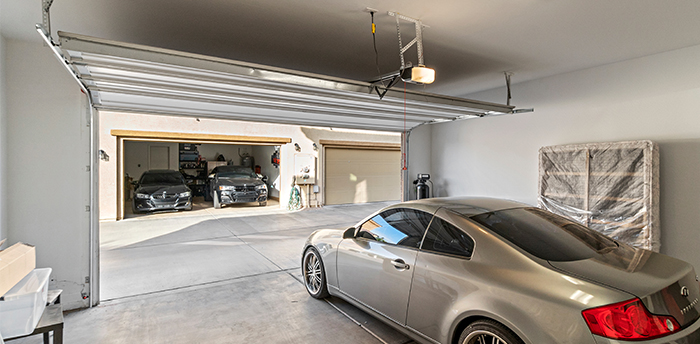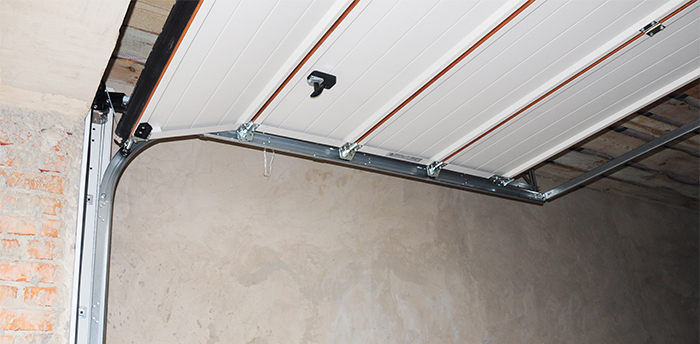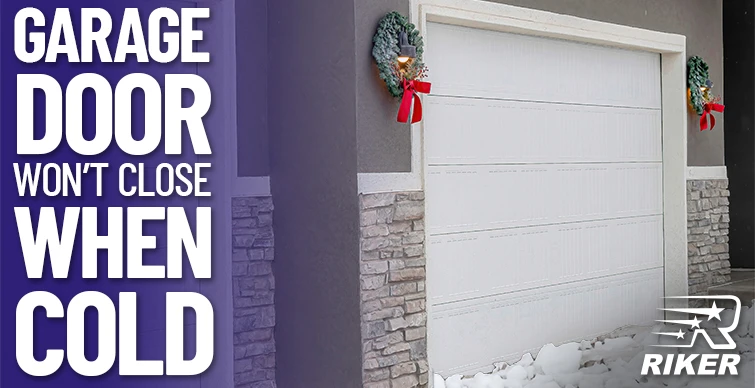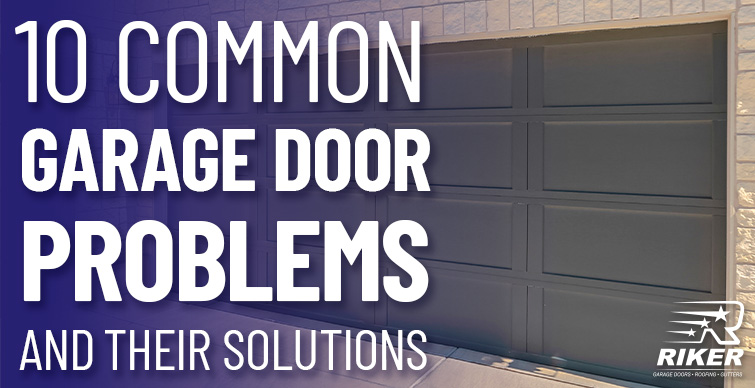
Stuck with a garage door that won’t close? Not only is it frustrating, especially if you’re in a hurry, but it’s also a security risk for your home and family.
You might notice it starts to close, but then reverses direction. Or maybe it closes part way, only to open again.
A blinking light on the opener is usually a sign that something’s amiss. But what’s causing the problem? It could be something simple, like misaligned photo sensors or dirt on the lenses. Maybe there’s an obstruction in the door’s path, or the rollers are too tight against the track.
There are a few common problems that can cause your garage door to malfunction. Broken springs, manual release mode, and sensor power issues are all common issues. In this guide, we’ll take a closer look at each of these issues and provide practical tips to get your garage door working smoothly again. For more detailed assistance, our garage door repair services are always available.
Sensor Issues with the Garage Door
Misalignment
Your garage door’s photo sensors are its eyes. These sensors need to be perfectly aligned to function correctly. If they’re not aligned just right, you might notice the door closing part way and then reversing. It’s worth checking that the sensors are pointing directly at each other. If they’re off, try adjusting them by hand to see if that resolves the issue. This simple tweak might just get your door working smoothly again.
Sunlight Interference
Sunlight can play tricks on your garage door’s sensors, making them think something’s in the way. If you suspect sunlight is the culprit, try a simple test: cover the sensors with your hand to block the sun, and then try closing the door. If that does the trick, you might need to find a way to shade the sensors from the sun’s rays. A visor or shield can help keep the sun from interfering, so your door can close smoothly.
Dirty Lenses
Dust and dirt can also cause problems for your garage door’s sensors, too. A dirty lens can block the signal and cause issues. The fix is easy: just wipe down the lenses with a microfiber towel every now and then. Keeping them clean helps the sensors do their job – detecting any real obstacles in the door’s path – so your door can open and close smoothly.
No Power to Sensors
If your garage door won’t close, it might be because the sensors aren’t getting any power. These sensors play a critical role in detecting obstructions, so if they’re not working, the door won’t close. Check the sensor lights—if they’re not on, it’s likely a power issue. Take a closer look at the wires and make sure they’re securely connected. If everything looks good, but the sensors still aren’t working, it’s time to dig deeper.
Loose Wires
Loose or disconnected wires can cause all sorts of problems, including sensor malfunctions. Double-check that all wires are securely connected to the sensors and the rest of the system. Properly connected wires ensure that the sensors can detect obstructions and allow the door to close safely. If you spot any issues or aren’t comfortable inspecting the wiring yourself, it’s best to call a garage door technician. They’ll be able to identify and fix any wiring problems,
Sensor Replacement
If none of the above solutions work to restore power to your garage door sensors, it might be time to replace the sensors altogether. Like any other electronic component, sensors can wear out over time or get damaged. If that’s the case, installing new sensors can resolve persistent issues and get your garage door operating safely and smoothly again.

Problems with the Track and Rollers
Obstructions
Your garage door tracks need to be clear for smooth operation. Even small objects can cause significant issues. Check for any physical obstructions blocking the track. If you find something in the way, remove it. A clear path means your garage door can glide open and shut without a hitch—without any surprise reversals.
Tight Rollers
Tight rollers can cause big problems. When they scrape against the track’s screws, it creates resistance and can make your door reverse. Adjusting the track to give the rollers some space sounds easy, but it’s actually a pretty precise process. If you’re not comfortable tackling it yourself, we recommend hiring a professional garage door technician. They’ll have the expertise and specialized tools to get your door running smoothly and safely. Plus, they’ll be able to spot any other potential issues before they become major headaches.
Broken Springs
Broken springs can be a major roadblock for your garage door. Since they bear the weight of the door, a broken spring can make it tough to close properly. Take a closer look at your springs—if you notice any gaps or weird bends, it’s likely broken.
Don’t try to tackle this one yourself, though. Springs can be hazardous to handle, and fixing them requires specialized equipment like winding bars, spring compressors, and safety gloves. A professional garage door tech will have the expertise to diagnose and fix the issue, and can repair or replace your garage door springs to get your door operating like new again.
Manual Release Mode
Sometimes, the garage door might be on manual release due to the emergency release cord being pulled. This mode allows you to operate the door manually but disables the automatic opener.
Check the emergency release cord and make sure it’s not engaged. If it is, simply switch it back to automatic mode and you should be good to go. This will restore the door’s normal functionality and let you open and close it with the remote or wall switch again.
When to Call a Garage Door Technician
Still having trouble with your garage door? If none of these fixes worked, it’s time to bring in a garage door technician. Sometimes, parts just wear out.
A professional technician has the training and equipment to get the job done safely. They’ll also give your door a thorough inspection to catch any underlying issues before they become major problems. And, with the right tools and know-how, they’ll handle tricky components like springs with ease.
That way, you can rest easy knowing your garage door is working like it should. Need help? Riker Home Services is here 24/7 to get your door back in action.
Is Your Garage Door Stuck Open? Call Riker Home Services Today
At Riker Home Services, we know how frustrating a struck garage door can be. Located in Plano and serving the entire Dallas-Fort Worth area, we specialize in providing reliable garage door installation, repair and garage door maintenance services.
If you need professional assistance, give us a call at (469) 551-3473. Our experienced technicians are ready to help you get your garage door back in perfect working order. Don’t let a malfunctioning garage door disrupt your day—trust Riker Home Services to keep your home secure and functional.
Frequently Asked Questions
Why won’t my garage door close all the way?
This could be due to misaligned photo sensors, obstructions in the track, or tight rollers. Check the alignment of the sensors and clear any obstructions. Adjust the track if necessary to ensure smooth operation.
Why does my garage door reverse after starting to close?
If your garage door starts to close but then reverses, it could be due to sunlight interference with the sensors, dirty sensor lenses, or an obstruction in the door’s path. Cover the sensors to test for sunlight interference, clean the lenses, and clear any obstructions from the track.
What should I do if the garage door opener light is blinking?
A blinking light on the garage door opener usually indicates a problem with the sensors. Make sure the sensors are aligned and not blocked by any objects. Check for loose wires and ensure the sensors are receiving power.
How do I know if the garage door sensors are not receiving power?
If the sensor lights are not on, it’s likely a power issue. Check the wires to ensure they are securely connected. If everything looks good but the sensors still aren’t working, there might be a deeper electrical issue that needs addressing.
Can sunlight affect my garage door sensors?
Yes, direct sunlight can interfere with the sensors and make them think there is an obstruction. Try shading the sensors with your hand to see if the door closes properly. If so, consider installing visors or shields to block the sunlight.
What should I do if my garage door is in manual release mode?
Check the emergency release cord and ensure it’s not engaged. Switching it back to automatic mode should restore normal functionality. This will allow you to open and close the door with the remote or wall switch.
Why are my garage door rollers tight against the track?
Tight rollers on your door’s track can create resistance and cause the door to reverse. We recommend hiring a garage door technician to handle this issue.
When should I call a professional for garage door issues?
If you’ve tried troubleshooting common issues like sensor alignment, clearing obstructions, and checking power to the sensors, but the door still won’t close, it’s time to call a professional. They have the expertise and tools to diagnose and fix complex garage door issues safely.


